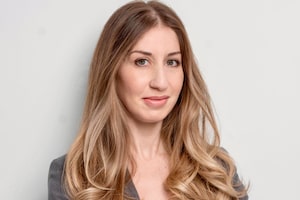There is perhaps no more important role for the leader of a democratic nation than upholding the safety and security of that democracy. School lunch programs and bills about tenants’ rights are typically of the domain of more localized governments, since they aren’t also tasked with the essential duty of protecting the integrity of the nation. The leader of that democracy is the one responsible for navigating threats as they arise – not his former campaign staffer, or the head of the country’s spy agency. The tough calls ought to be made by the Prime Minister.
You wouldn’t know that, though, by listening to the hours of testimony provided by Prime Minister Justin Trudeau, who appeared before the Commission of Inquiry into Foreign Interference on Wednesday. The last time Mr. Trudeau testified at a public inquiry – in November, 2022, over his government’s use of the Emergencies Act – he was measured and confident, steadfast in his belief that his decision was the correct one. His decision.
This time, the message conveyed by the Prime Minister through his testimony was that he was a passive observer – a relatively incurious one, at that – when presented with allegations that China was meddling in Canada’s elections. He simply didn’t have enough information, or the proper advice, or the national security leeway to take action. Nor did he endeavour to seek it.
Mr. Trudeau told the inquiry that he doesn’t read all of the documents that land on his desk, but instead relies on his advisers to orally brief him on the things he needs to know. He said that he learned of “irregularities” in the 2019 nomination race won by Han Dong in Don Valley North when he was briefed by then-Liberal national campaign manager Jeremy Broadhurst during the election. Mr. Broadhurst relayed that officials from the Canadian Security Intelligence Service (CSIS) had information suggesting that People’s Republic of China officials in Canada had mobilized a bus of international students to vote for Mr. Dong.
Mr. Trudeau said he then asked Mr. Broadhurst: Was CSIS sure this happened? Were they certain China was responsible? Did Mr. Dong know?
“The answers were not clear from CSIS at that point, according to what Mr. Broadhurst had told me,” Mr. Trudeau testified. And since CSIS was not recommending specific action (Mr. Trudeau said he specifically asked Mr. Broadhurst if CSIS was advising a particular recourse), that was enough for the Prime Minister. Nothing else to do. CSIS had been wrong in the past, after all.
The public would hear none of this until February, 2023, when Global News reported that CSIS had been tracking alleged efforts by Beijing to get Mr. Dong elected. In response to the story, and despite being briefed on the matter in 2019, Mr. Trudeau blasted the report as an example of “anti-Asian racism.”
On Wednesday, Mr. Trudeau testified that there were “clear falsehoods” in media reporting at the time, but that national security concerns prevented him from clearing them up. In fact, he cited national security throughout his testimony – when asked about the conversation Mr. Dong had with a Chinese diplomat about the detention of Michael Spavor and Michael Kovrig, for instance. By his own telling, the Prime Minister didn’t, and doesn’t, have the option of informing the public about threats to Canada’s democracy.
This explanation would be easier to digest had Mr. Trudeau not previously hobbled through controversies on his “national security” crutch. He repeatedly declined to give details about the two scientists abruptly escorted out of the National Microbiology Laboratory in Winnipeg in 2019, for example, citing national security concerns. Yet back in February, a committee tasked with reviewing documents related to the firing noted that the withheld information had been “mostly about protecting the [Public Health Agency of Canada] from embarrassment for failures in policy and implementation, not legitimate national security concerns.”
One can’t say for certain that Mr. Trudeau is leaning on “national security” to spare his government embarrassment on this matter. But what is fairly certain is that nearly everything Canadians have learned over the past couple of years about China’s alleged efforts to meddle in our elections would not be public knowledge had there not been leaks, media reports, and eventually, this public inquiry.
In his first – and in the end, only – report on foreign interference, special rapporteur David Johnston wrote that “One of the most important ways to counter foreign interference is for the public to understand what it looks like and how to be resilient against it.” That can only happen, of course, if the Prime Minister decides it is worthy of investigation and disclosure. It also helps if he reads his memos, and doesn’t rely on others to tell him what he needs to know and what to do.
 Robyn Urback
Robyn Urback